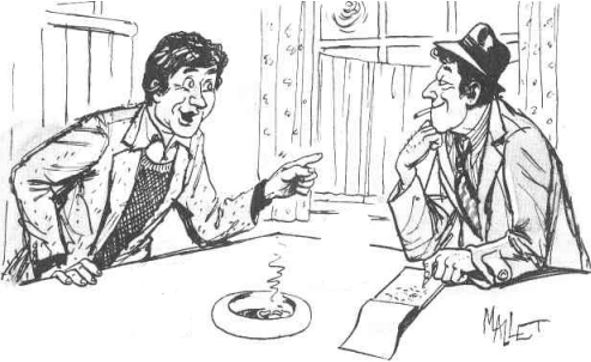


 Grammar
Grammar
 Tenses
Tenses
 Present
Present
 Past
Past
 Future
Future
 Parts Of Speech
Parts Of Speech
 Nouns
Nouns
 Verbs
Verbs
 Adverbs
Adverbs
 Adjectives
Adjectives
 Pronouns
Pronouns
 Pre Position
Pre Position
 Preposition by function
Preposition by function 
 Preposition by construction
Preposition by construction
 Conjunctions
Conjunctions
 Interjections
Interjections
 Grammar Rules
Grammar Rules
 Linguistics
Linguistics
 Semantics
Semantics
 Pragmatics
Pragmatics
 Reading Comprehension
Reading Comprehension|
Read More
Date: 31/10/2022
Date: 2024-01-28
Date: 2024-01-28
|

George Banks was a clever journalist. He worked for a good newspaper, and he liked arguing very much. He argued with anybody, and about anything. Sometimes the people whom he argued with were as clever as he was, but often they were not.
He did not mind arguing with stupid people at all: he knew that he could never persuade them to agree, because they could never really understand what he was saying; and the stupider they were, the surer they were that they were right; but he often found that stupid people said very amusing things.
At the end of one argument which George had with one of these less clever people, the man said something which George has always remembered and which has always amused him. It was, 'well, sir, you should never forget this: there are always three answers to every question: your answer, my answer, and the correct answer.
A Which of these sentences are true (T) and which are false (F)? Write Tor F.
B Answer these questions:
C Find words in the story which mean about the same as:
|
|
|
|
دراسة تحدد أفضل 4 وجبات صحية.. وأخطرها
|
|
|
|
|
|
|
جامعة الكفيل تحتفي بذكرى ولادة الإمام محمد الجواد (عليه السلام)
|
|
|